The largest day of climate protest in the planet’s history
In a world with rising sea levels, scorching temperatures, devastating fires and more pollution than we can track, we can’t afford to look away. Science and justice demand that we do more than simply address the symptoms of the climate breakdown. We need to build solutions that will not only keep fossil fuels in the ground but improve the lives of billions of people.
On September 20th - 27th, there will be the first all-ages global climate strike. People will walk out of their jobs — some will plant trees, others will join protests. The targets will be as diverse as the geography: in different parts of the planet, people will be sitting down in front of pipelines; demanding that their institutions divest fossil fuel stocks; urging UN nations to increase their carbon-cutting commitments; calling for carbon taxes; insisting on a Green New Deal. And here in Africa:
In Abuja, Nigeria: People will take to the streets to demand that policymakers make greater strides in environmental policies and laws.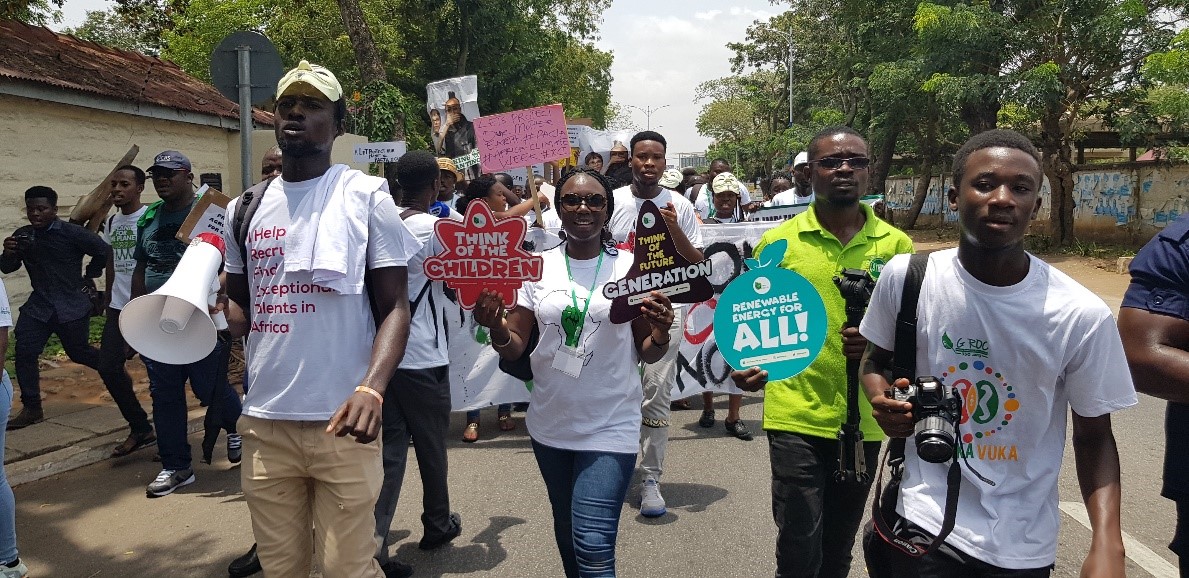
In Cape Town, South Africa: Learners from around 50 schools across the city will protest the South African Government’s lack of action on the climate emergency. 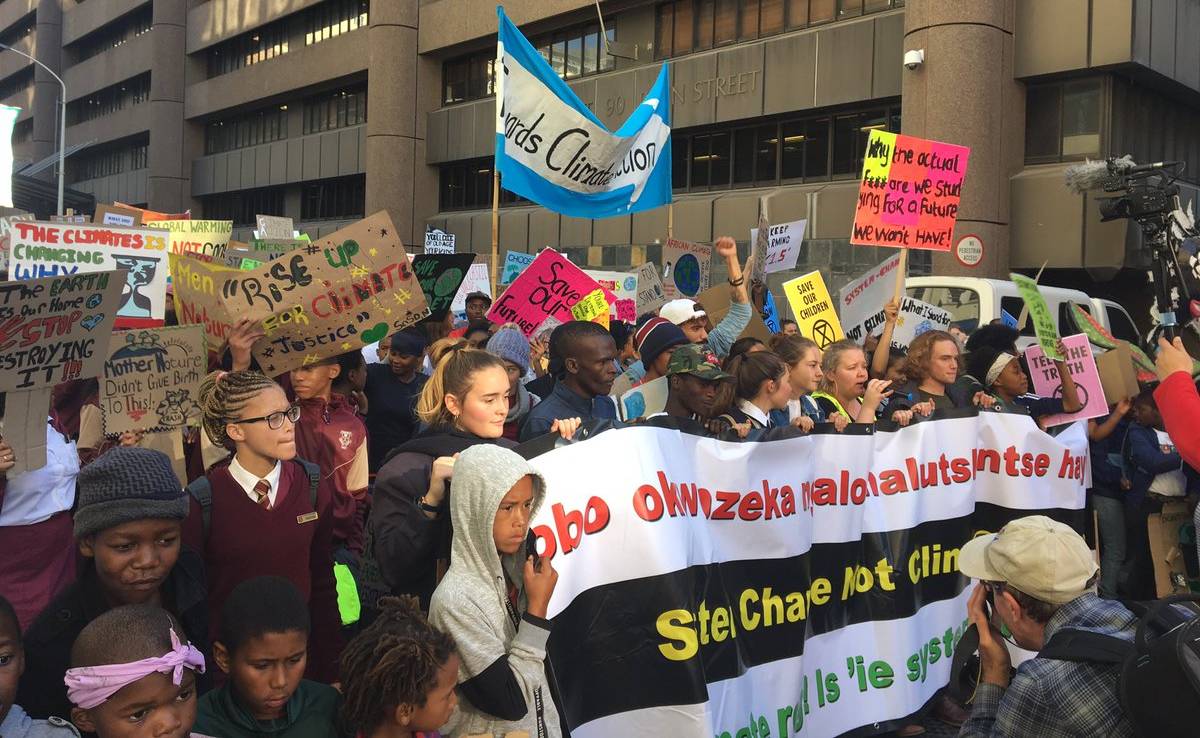
In Goma, Democratic Republic of Congo: local communities, civil society organisations and young people will mobilize around climate issues to inform the population about the climate emergency and call on President Felix Tshisekedi to adhere to national and international conservation laws, protect farmers and prioritize investment in renewable energy. 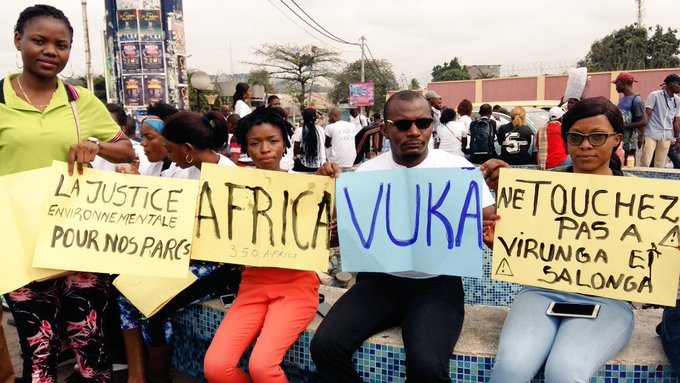
In Johannesburg, South Africa: There will be a peaceful march to call for an acceleration of a just transition towards a low carbon, renewable energy future. 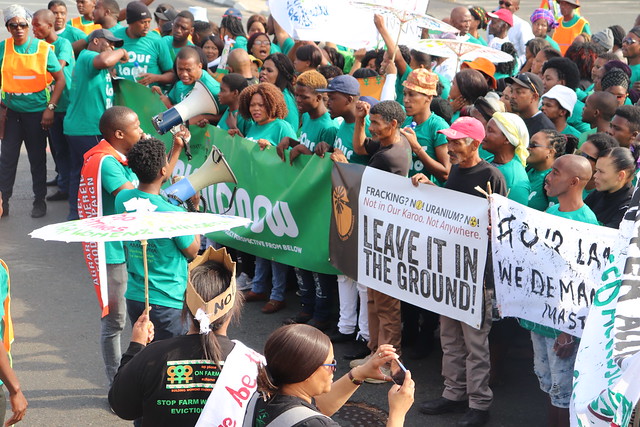
In Kaolack, Senegal, Action Solidaire International is organising a climate camp that will be followed by a march to call on policymakers to stop the Bargny coal-powered station from operating.
In Nairobi, Kenya, Led by thousands of workers, students and youth organizers all across the country are coming together to let their government know that they won’t stand down from their demands for a shift to 100% renewable energy.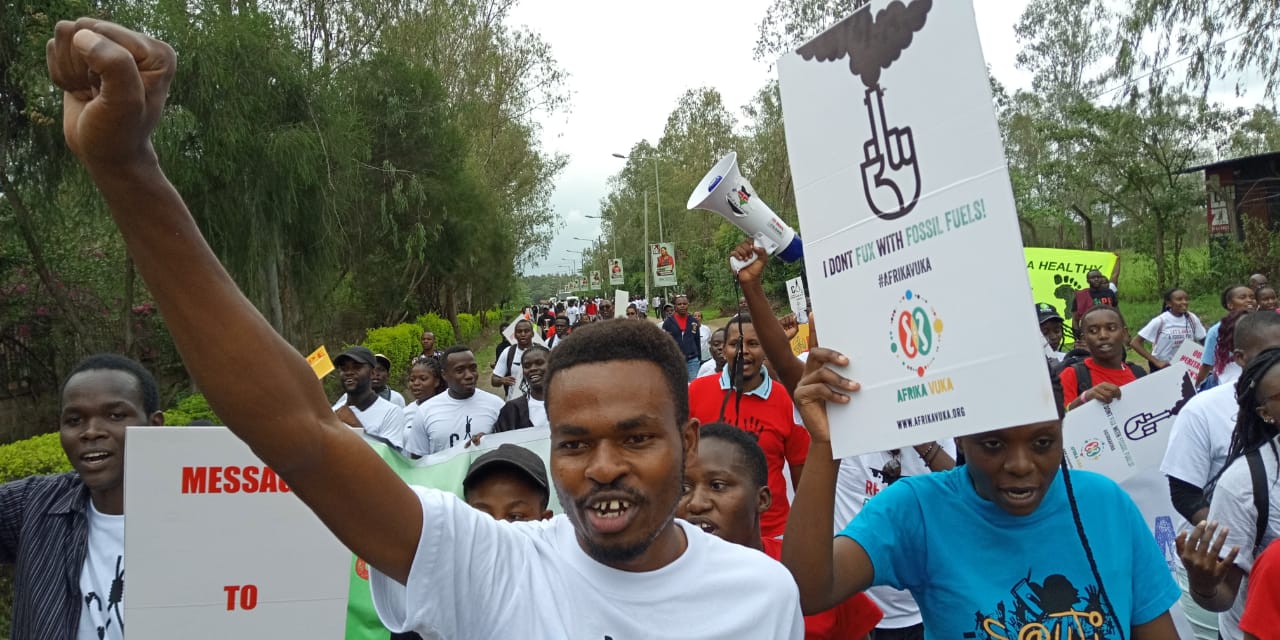
Many more people in Africa and around the world are joining the Global Climate March to demonstrate that there is a global movement demanding real climate action. Check out the website to see if something is planned near you already - or register your own event.
Break Free 2018 - Here's What Happened!
On Friday, people across Africa stepped up their commitment to keeping fossil fuels in the ground with courageous actions that have challenged business as usual across Africa.
Click here to see photos from Break Free actions that happened on Friday!
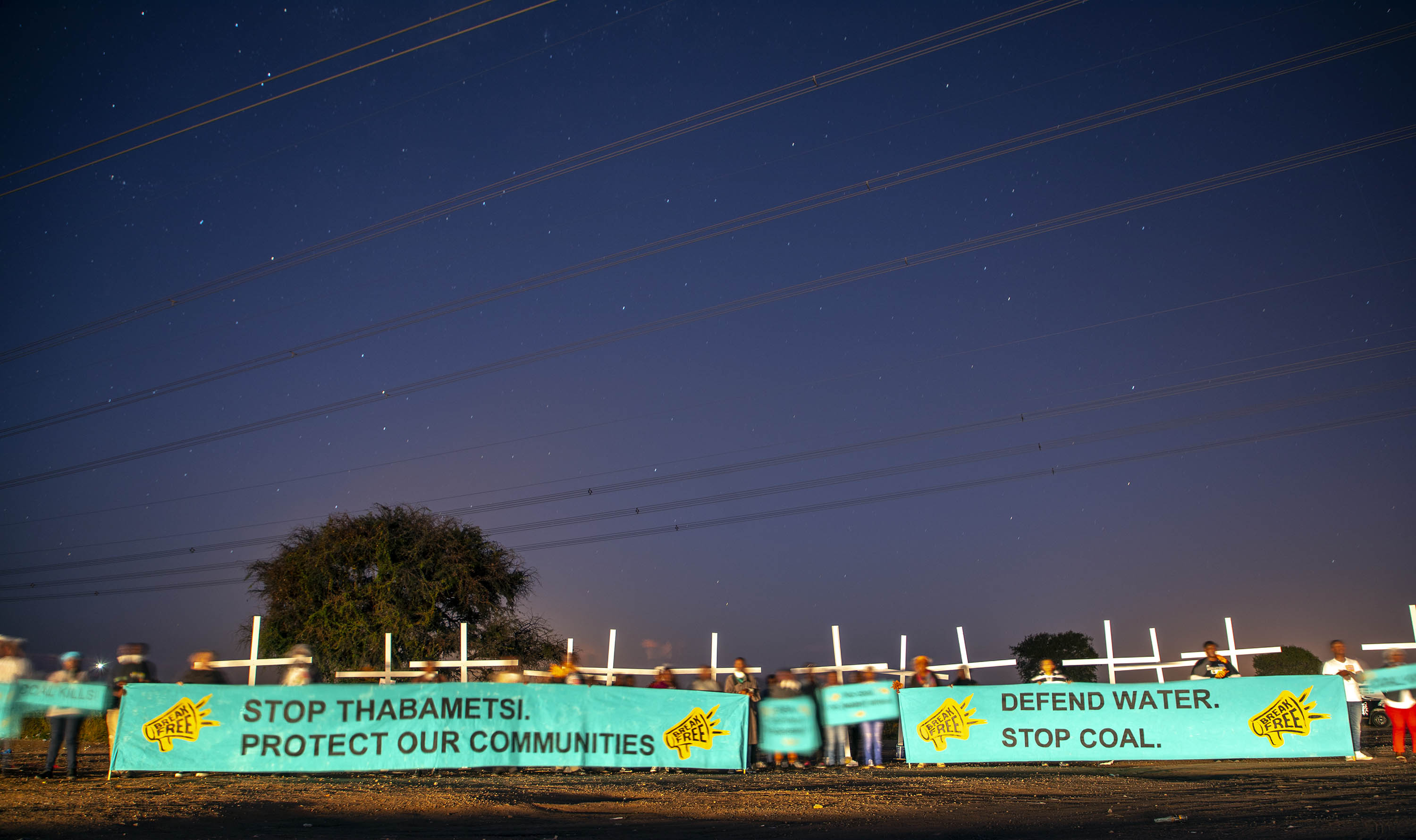
Break Free stood up to the proposed coal-fired station in Lamu, Kenya - told the Development Bank of Southern Africa to not fund Thabametsi, or any more coal projects in South Africa - reached out to communities in the Eastern region of Ghana (Dome, Asayansu, Kwesi Kunde, Fori) to promote and distribute renewable energy solutions.
#Breakfree Press Conference in Abuja Made Headlines, See one below:
We will not rest untill we #BreakFree from Fossil Fuels and embrace Renewable Energy for the good of all of us. @350Africa @AfricaCRP @ninteretse @GlenTyler @groundWorkSA @Rukiya_Khamis https://t.co/LprVpyiwgb— David Mike Terungwa (@miketerungwa) May 27, 2018
With powerful actions involving people across the continent, Break Free from Fossil Fuels took the fight directly to the fossil fuel industry and showed just how powerful we can be when we act together.
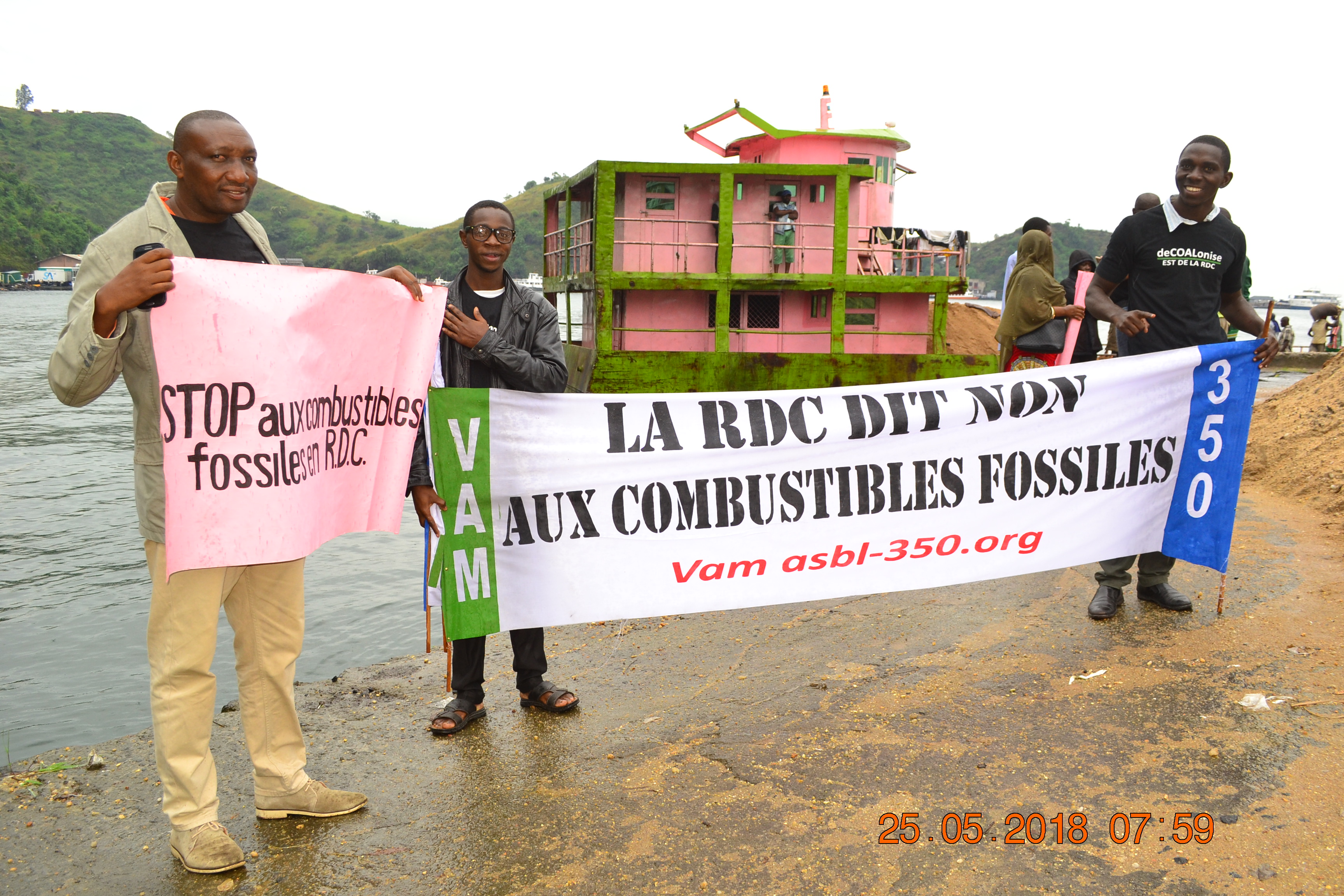
The only way we’ll defeat the fossil fuel industry, which is wrecking our climate is if we all come together to show it up for what it is: an immoral and dangerous industry that is at odds with a safe future.
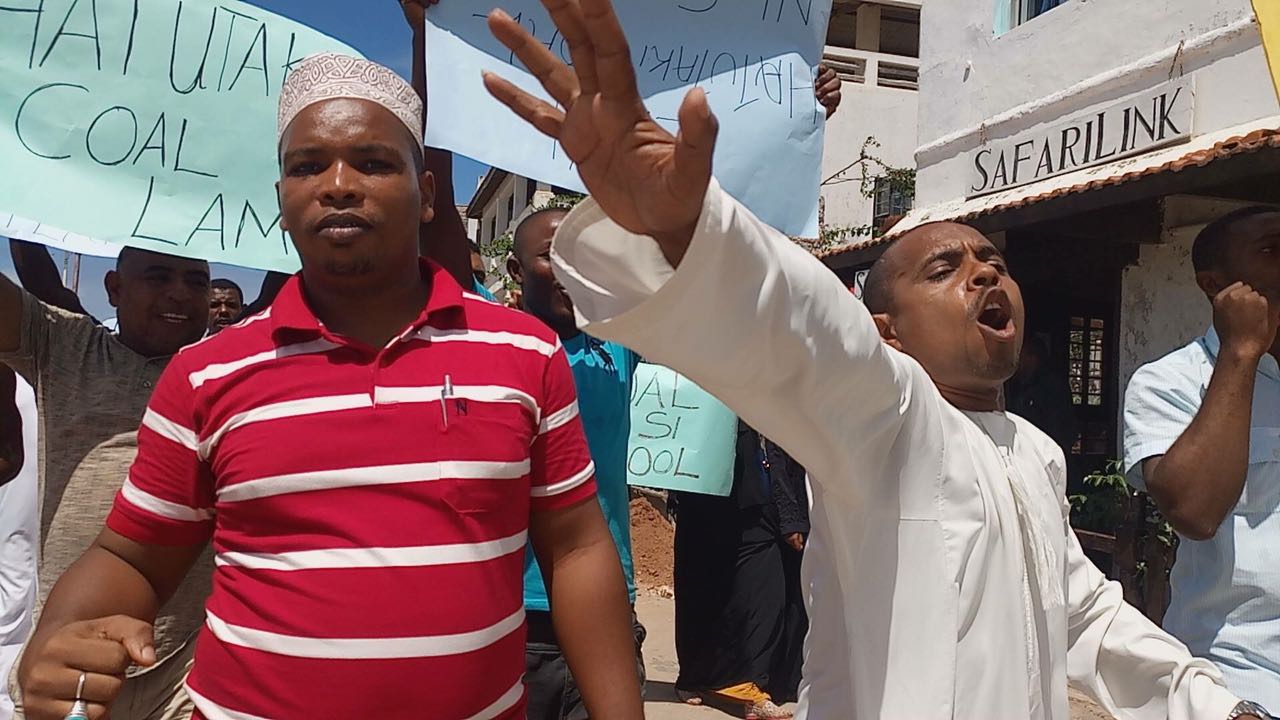
As the planet becomes dangerously hot, our greatest collective hope is that this movement continues to grow in size, strength and boldness. Friday showed what we can accomplish together.
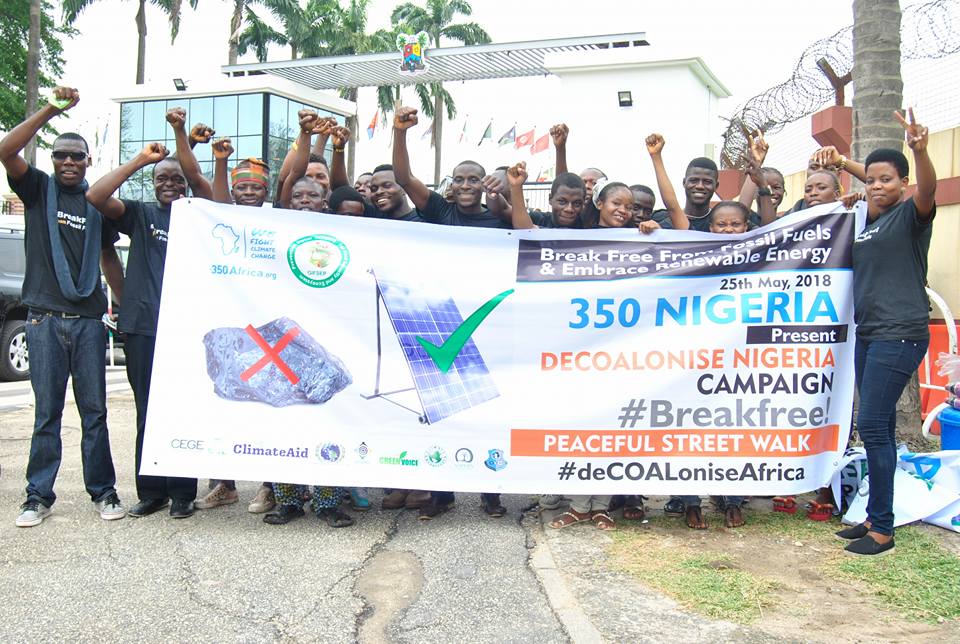
In every country that took action on Friday -- Cote D’Ivoire, South Africa, Nigeria, Egypt, Zambia, Senegal, Kenya, Togo, Uganda, Ghana -- organising against fossil fuels and for renewable energy will continue, stronger than ever.
Children are the future of tomorrow, let us habit train them to #breakfree and go for #fossilfree. Children in Kenya are saying #CoalSiCool @350_kenya @350Africa @ninteretse @deCOALonize @LamuYouthAllia1 @savelamu #deCOALonize pic.twitter.com/OjlAb902pj
— BintiKhamis (@Rukiya_Khamis) May 25, 2018
Because people everywhere see the writing on the wall: the planet is heating up, renewable energy is becoming more affordable, and the fossil fuel industry is entering a financial crisis, the time has come to stand up to its power and pollution.
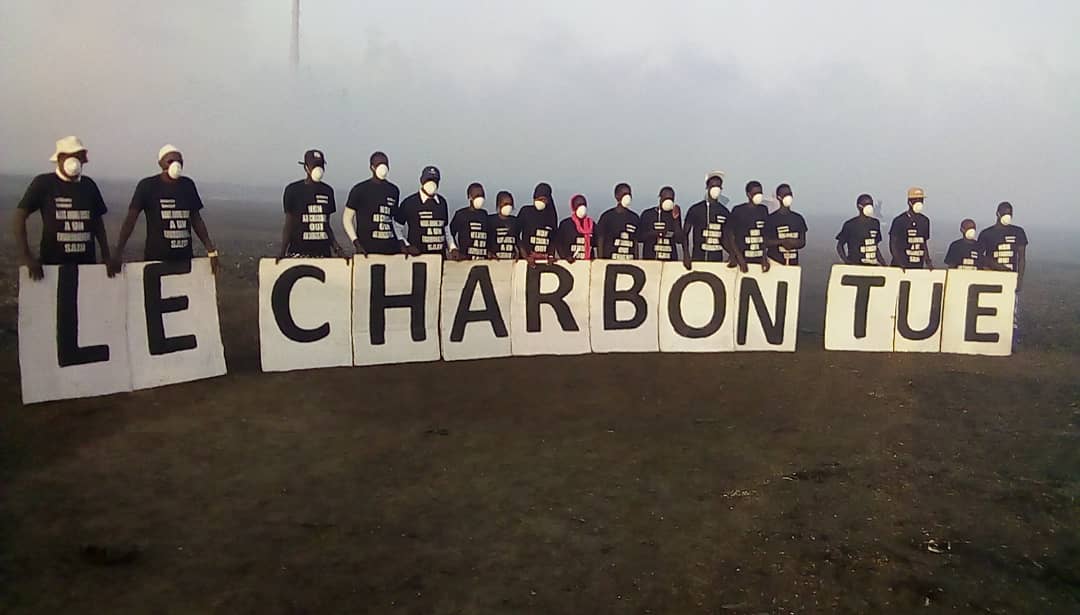
This movement will continue to grow in all of its forms: divesting from fossil fuels, blocking fossil fuel extraction and transportation, passing fracking bans, stopping new coal plants, ending fossil fuel subsidies, and securing commitments build a 100% renewable economy.
in case you missed us ,#GreenEnergy is the future.#breakfree #fossilfuel #FossilFriday #fossilfree #ClimateChange pic.twitter.com/9pw4wjvn9k
— Asmaa Hanafi (@AsmaaHanafi1) May 27, 2018
But our work does not end here. The need for a rapid transition to renewable energy has never been more urgent, and the way we get there is by continuing to organise, mobilise and campaign.
This how we did it in Lagos Nigeria. Happy that African Youths are Championing this course- We must #BreakFree from Dirty Energy. @350Africa @AfricaCRP @gifsep4climate @ninteretse @GlenTyler @Rukiya_Khamis pic.twitter.com/BJJVFp9bch
— David Mike Terungwa (@miketerungwa) May 26, 2018
Even though Break Free 2018 is now over, you can get involved in climate campaigns and mobilisations by signing up to the deCOALonise.africa platform mailing list, or getting involved in the global mobilisation, Rise for Climate.
Break Free 2018: These events caught our imagination.
-
In Kenya - Folks will be rolling out coordinated actions - Photo exhibitions, debates, twitter chats, and an “AntiCoal Khanga show“ in Lamu challenging women to use a traditional attire (Khanga: a vibrantly coloured East African cloth worn by women) to tell the African story of fossil fuel impacts.
-
In Nigeria - People will be joining forces to talk about the easy switch from generators and kerosene for lighting to solar in a caravan around a college. A press conference with people from mining-affected communities, a renewable energy presentation and non-violent direct action training will also be held.
-
In Ivory coast - Film screenings and community debate to denounce a coal plant project in San-Pedro, alongside a Twitter chat addressed to the AfDB - who are funding coal projects across Africa to reiterate that Ivory Coast doesn’t need coal, but rather renewables to satisfy its energy demand and accelerate its development.
-
In South Africa, events range from rallies to workshops on climate change and the case for breaking free from fossil fuels, to people calling on the Development Bank of Southern Africa to publicly commit to not funding the Thabametsi coal-fired power plant.
-
In Senegal - Civil society and climate justice groups, local communities, students and women groups are attending a large community forum in Bargny to oppose the launch of the first coal power plant in Senegal and call on the government to stop this project.
-
In Ghana - 350 GROC is reaching out to communities in the Eastern region of Ghana (Dome, Asayansu, Kwesi Kunde, Fori) to mobilise on renewable energy This event is part of the ongoing campaign led by GROC to advocate for a rapid transition towards 100% renewables as a way of increasing electricity access to communities.


